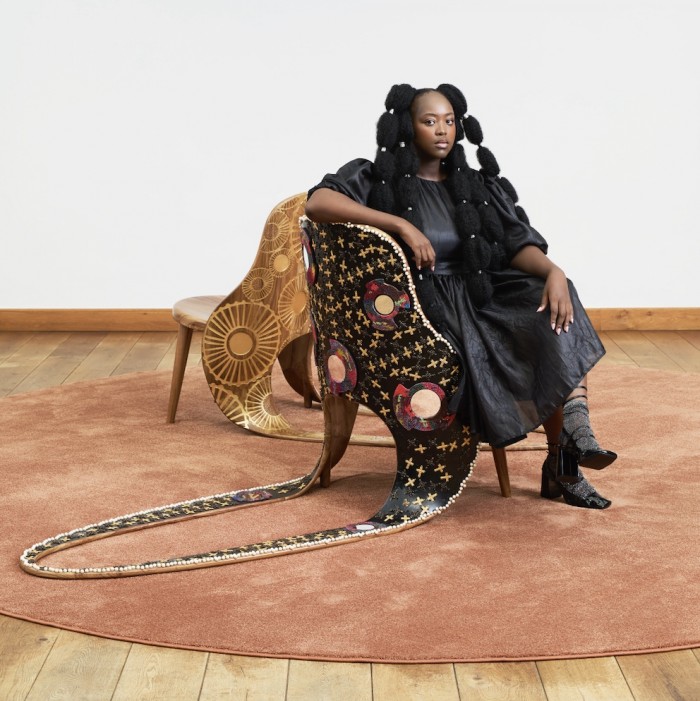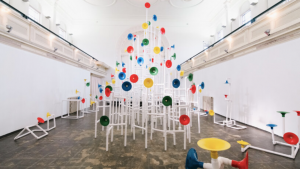One of the most significant events on the annual design calendar, Milan Design Week returned to the Italian design capital between 16 and 21 April 2024 with an explosive celebration of global design anchored by Salone del Mobile Milano, the Milan Furniture Fair.
We take a look at some of Design Indaba’s highlights from this year’s show.
Mash T Design Studio for Gen D by Dolce & Gabbana
Dolce & Gabbana’s Gen D exhibition featured creations from 11 promising designers under the age of 40 from around the globe, including South Africa’s Thabisa Mjo of Mash T Design Studio – winner of Design Indaba’s Most Beautiful Object in South Africa in 2018. Mjo’s pair of intricately designed chairs, titled ‘Dynamic Tension’, reflects opposing forces of masculinity and femininity as a ‘dynamic dance of wholeness’.
‘Hello, Earth Speaking’ by The Good Plastic Company
The Good Plastic Company and StudioXAG presented an interactive exhibition including a giant earth sculpture created entirely from Polygood, a material made from 100% recycled and recyclable plastic. Exhibition-goers were asked to answer the question ‘How can we design a brighter future?’ to explore how to reimagine the design process to minimise waste, preserve resources, and protect the planet for future generations.
Making Sense of Colour by Google
Google partnered with Chromasonic, a research studio, to craft a kaleidoscopic labyrinth called Making Sense of Colour composed of semi-transparent screens illuminated from above. The aim of this installation was to replicate the sensation of synesthesia, a perceptual phenomenon where individuals perceive one sense through another, such as hearing colours.
Diébédo Francis Kéré x next125
Pritzker Prize winner and Design Indaba alum Diébédo Francis Kéré created a circular pavilion out of 600 logs for German kitchen brand next125. The Fireplace explored the concept of a kitchen as a place for communal gathering with a circular dome that extends into seating surrounding a central kitchen unit.
Nieuwe Instituut's New Store 2.0
At the second edition of Nieuwe Instituut’s New Store, New Store 2.0 offered a glimpse of how retail could employ a circular economy with an experimental pop-up that offered free haircuts, and then used the hair trimmings to create two different textile products: clothing and artwork.
Read more.











